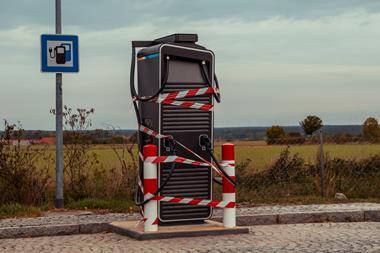All nicotine-containing products (NCPs), such as electronic cigarettes, are to be regulated as medicines in a move to make these products safer and more effective to reduce the harms of smoking.
The UK Government has decided that the Medicines and Healthcare products Regulatory Agency (MHRA) will regulate all NCPs as medicines so that people using these products have the confidence that they are safe, are of the right quality and work.
Jeremy Mean, the MHRA’s goup manager of vigilance and risk management of medicines, said: "Reducing the harms of smoking to smokers and those around them is a key Government health priority. Our research has shown that existing electronic cigarettes and other nicotine containing products on the market are not good enough to meet this public health priority.
“Some NCPs are already licensed and the Government’s decision to work towards medicines licensing for all these products is designed to deliver quality products that will support smokers to cut down and to quit.
“The decision announced today provides a framework that will enable good quality products to be widely available. It’s not about banning products that some people find useful, it’s about making sure that smokers have an effective alternative that they can rely on to meet their needs."
The announcement follows a public consultation on how to regulate these products which demonstrated widespread support for medicines regulation from the public health community.
Recent public health guidance published by the National Institute for Health and Care Excellence (NICE) supports the use of licensed nicotine products in helping people to cut down or stop smoking.
The UK Government will press for EU law to create a Europe-wide legal position on NCPs as medicines through the revision of the Tobacco Products Directive. The European Commission has said it expects the new legislation to be adopted in 2014 and for it to come into effect in the UK from 2016. From that point, all NCPs will require a medicine licence. This will allow time for manufacturers to ensure that their products meet the safety, quality and efficacy requirements of a medicine. Until that law is in place, the MHRA would encourage those manufacturers with unlicensed products currently on the market to apply for a medicine licence.
Chief medical officer Professor Dame Sally Davies said:
“Smokers are harmed by the deadly tar and toxins in tobacco smoke, not the nicotine. While it’s best to quit completely, I realise that not every smoker can and it is much better to get nicotine from safer sources such as nicotine replacement therapy.
“More and more people are using e-cigarettes, so it’s only right these products are properly regulated to be safe and work effectively.”
Deborah Arnott, Chief Executive of health charity ASH, said: “ASH strongly supports the MHRA decision to regulate e-cigarettes and other novel nicotine products – we think this is both proportionate and necessary. Regulation will ensure that e-cigarettes meet the same standards for quality, safety and efficacy as medicines while remaining as readily available to smokers as they are today. Crucially it will also ensure marketing of e-cigarettes and other such products is controlled to prevent their promotion to children and non-smokers”

































No comments yet